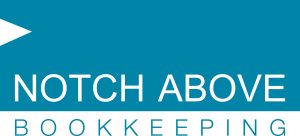Get Your Head Ready for the 2015/2016 Financial Year…
PLANNING FOR BUSINESS SUCCESS
~ Mark Creedon, Red Monkey Coaching.
The most important aspect when looking to secure future success in your business is to plan for it. There is a saying that “a failure to plan is a plan to fail” and, with the new financial year here, now is the time to develop your plan for success for the coming twelve months.
A business plan doesn’t need to be a complex or complicated document that once completed sits on the shelf collecting dust, rarely seeing the light of day. A truly effective business plan should be more like a readily-available guide or map for where you want your business to go in the coming year.
Normally, little more than a single page is all you need to be able to have a clear picture of where you want your business to be and an outline of the steps you need to take in order to get there. The simplicity of this business plan model allows you to focus your headspace and allows you to spend your energy on the steps and activities that will actually help you to achieve your goals and milestones.
Direction
Firstly, you have to think about the overall direction and vision of your business. This involves asking the question, “Where do I actually want my business to be in twelve months’ time?” This will be a matter of looking at the following:
- Where will my business operate from?
- Where will my business fit in the marketplace?
- How will my business model evolve?
- What staff will I have?
- What turnover do I want to achieve?
- What retained profit do I want from the business?
- What changes within the industry will influence my business?
Secondly, take the time to review and reflect on the action you have taken in business over the last year; highlight the lessons learned, potential areas of growth and identify what actions worked (and those that didn’t) – the Red Monkey Coaching Business Pulse Check Workbook (downloadable at www.redmonkeycoaching.com) is a great place to start.
Having a direction and clear goals is a great foundation point. However, you won’t achieve those goals and reach the desired direction without having a clear strategy in place to achieve them.
The question to focus on is, “What are the steps and actions I need to take to achieve the goals and who do I need to help me achieve the goals?” To do this look at each goal individually and outline three clear steps that you will take toward achieving the goal.
If you’d like to know more, contact Mark at Red Monkey Coaching.





